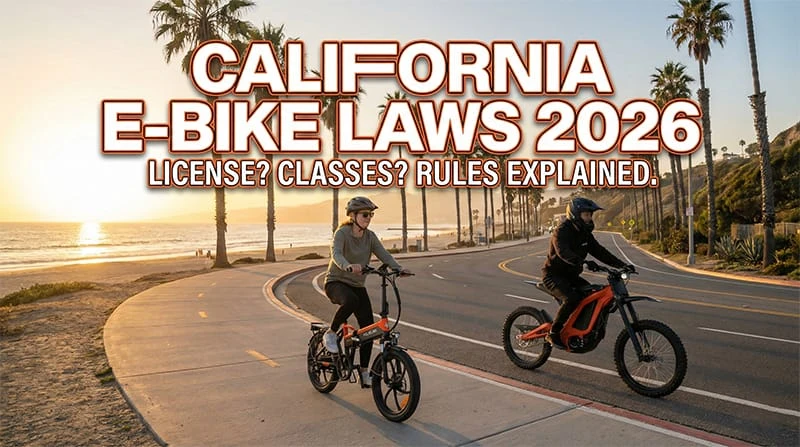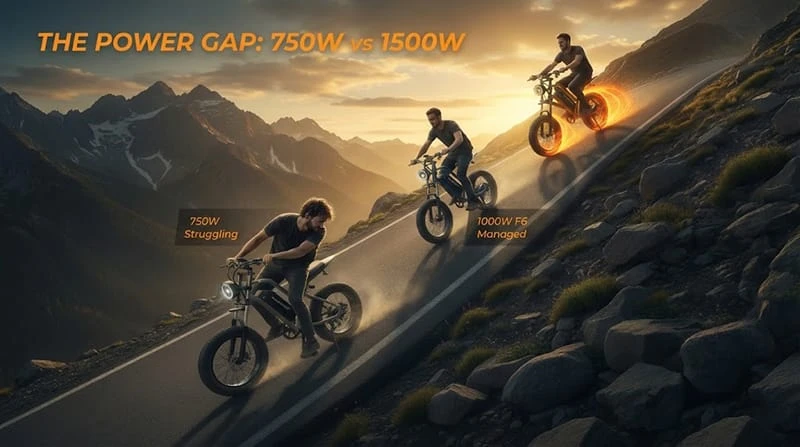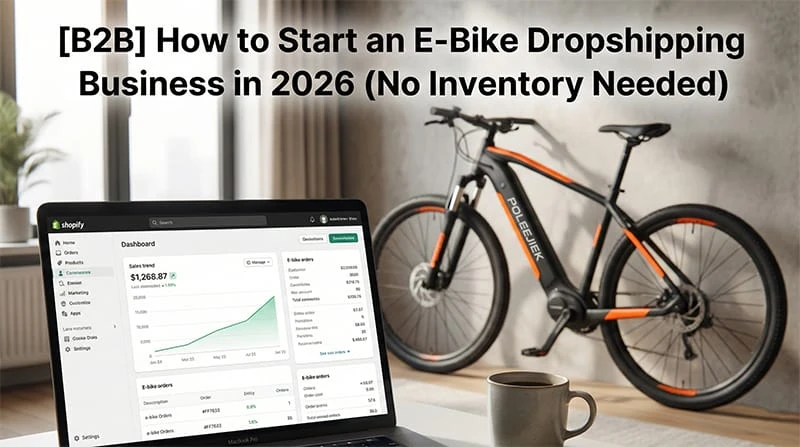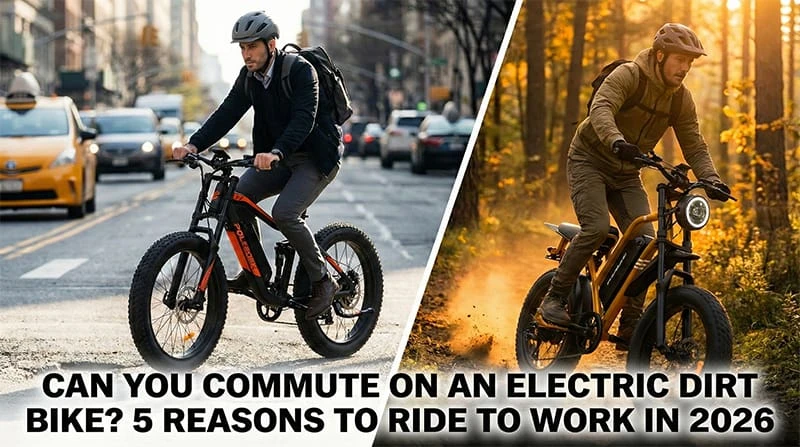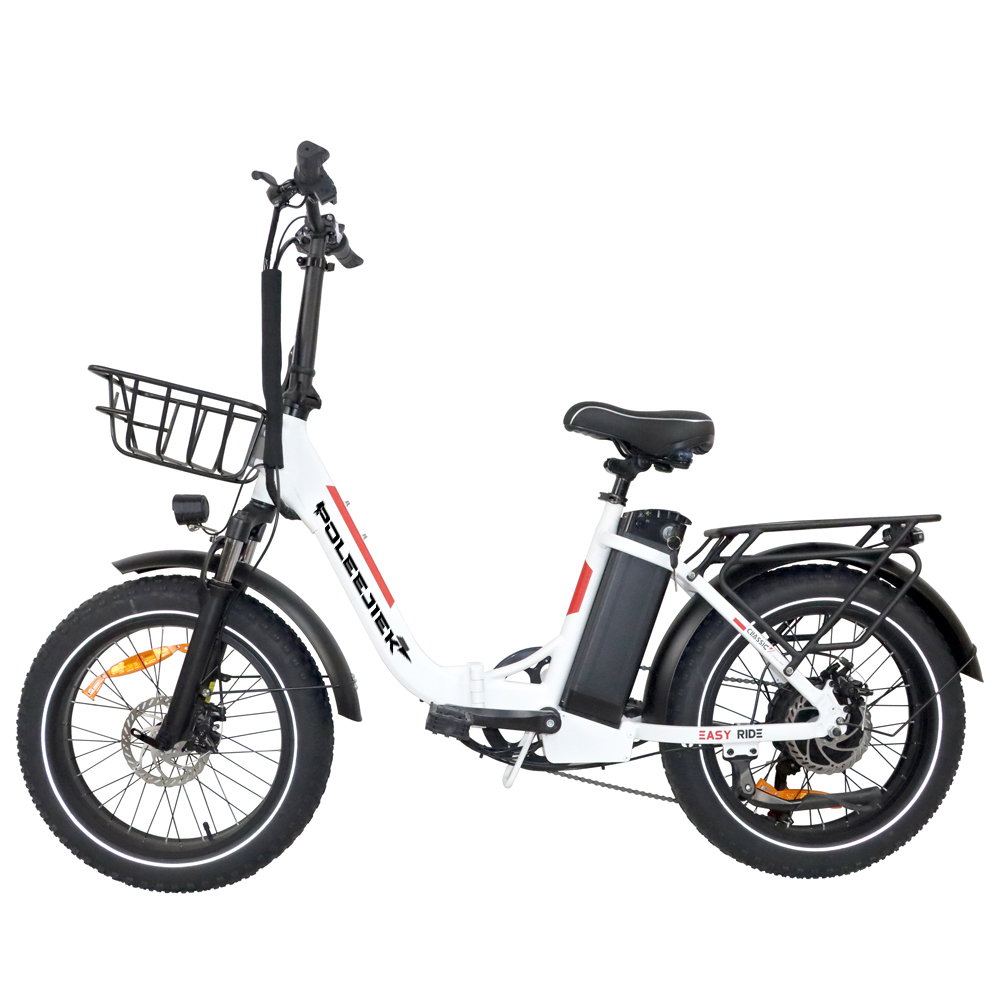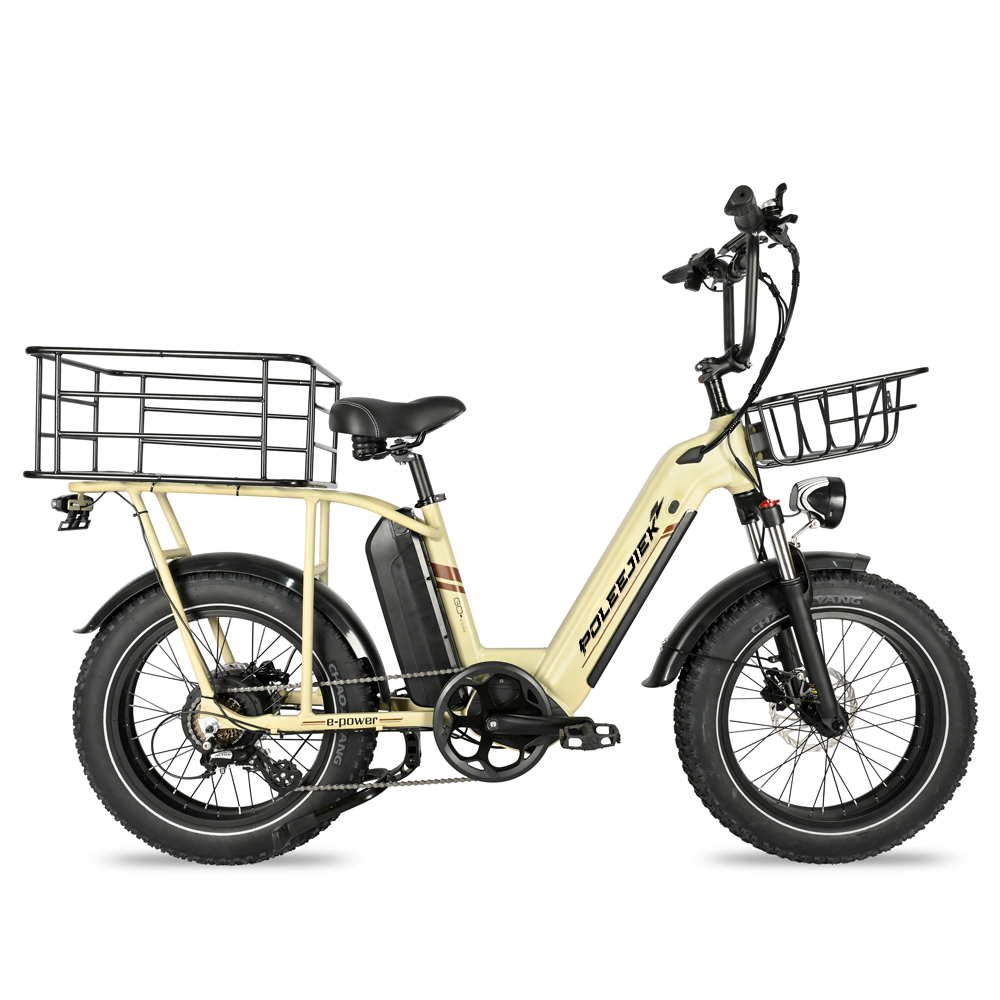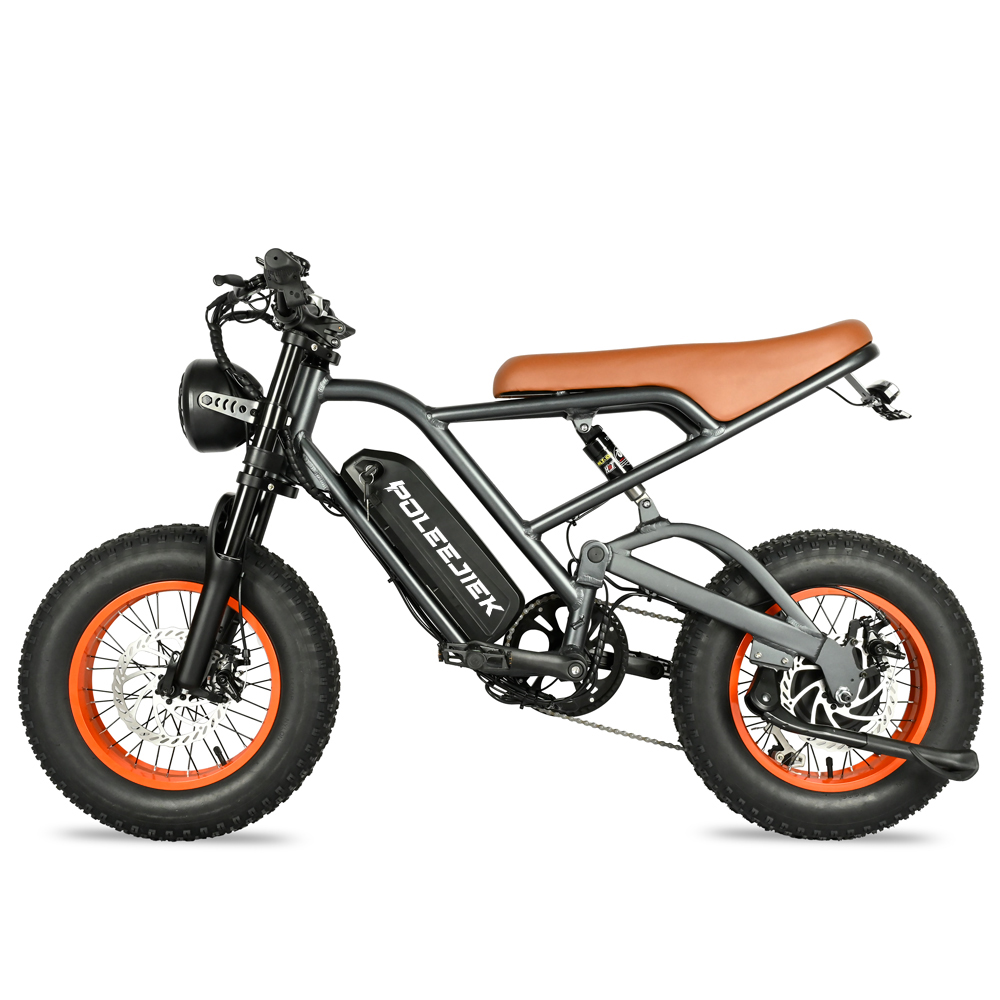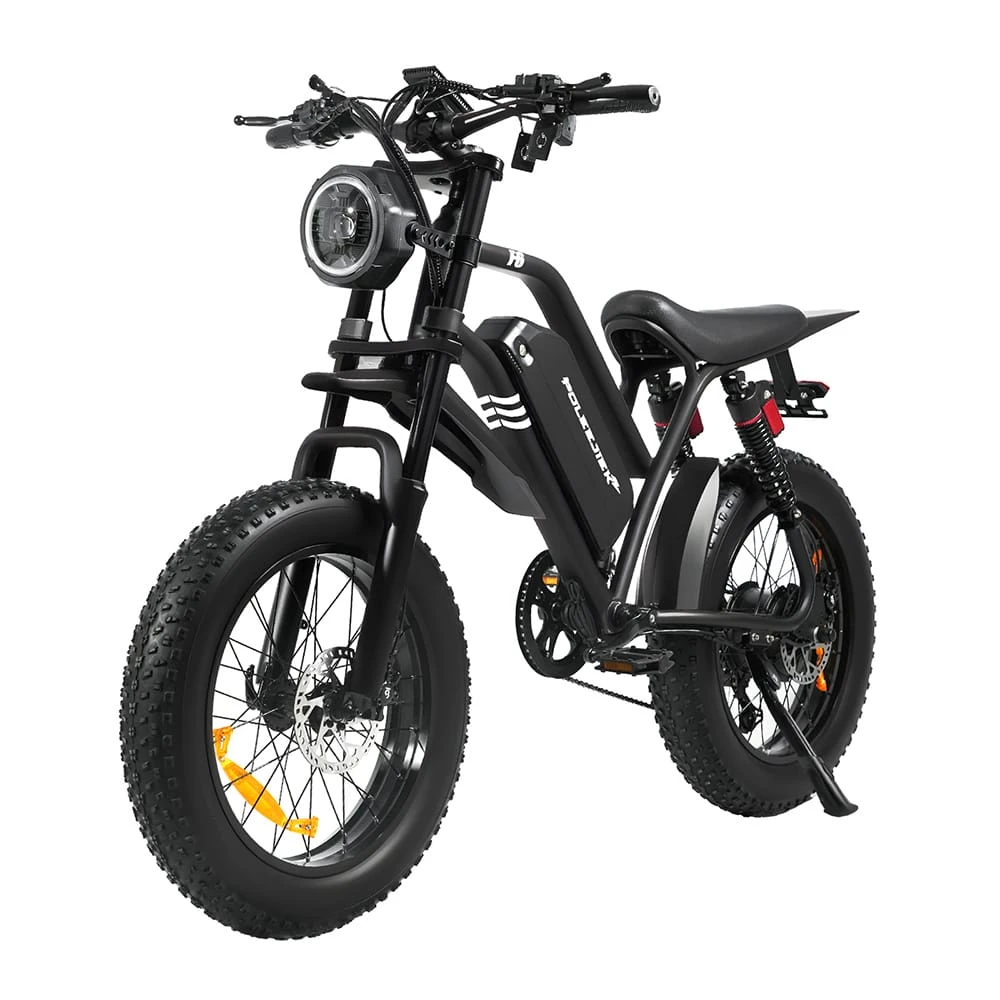E-Bike ESG & Recycling: Your B2B Competitive Advantage
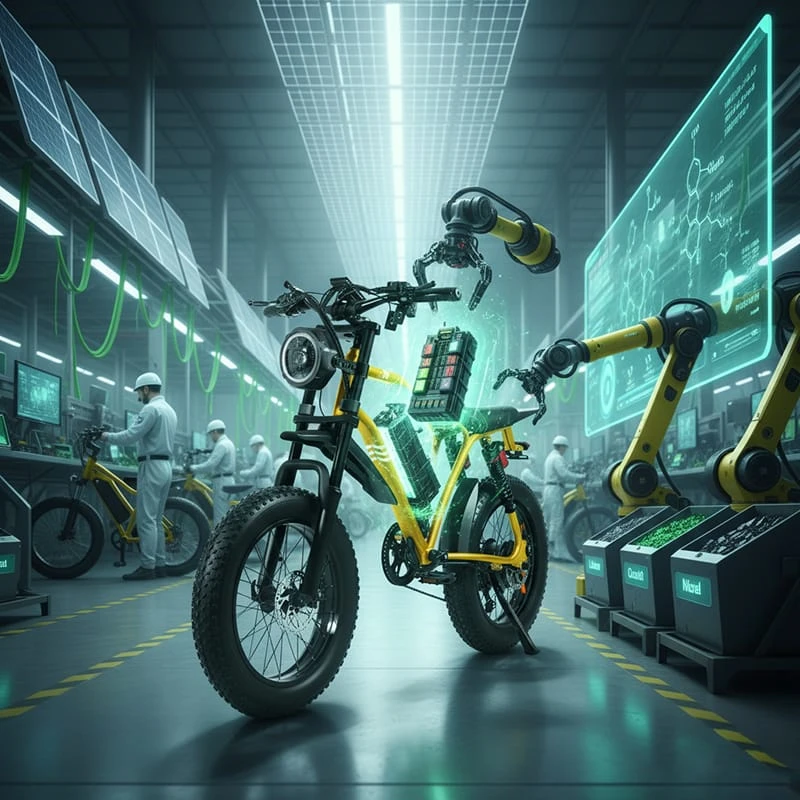
Electric bikes are the undisputed future of green transportation. They combat urban congestion, reduce carbon emissions, and promote public health. But as the market explodes, a "green paradox" emerges.
If the manufacturing of an e-bike, and more critically, the disposal of its battery, is not environmentally sound, are we simply trading one problem for another?
This is no longer a philosophical question. It's a core B2B procurement challenge. With sales of adult electric bikes surging globally, we are on the verge of creating a "lithium-ion mountain." Your customers, and more importantly, regulators, are taking notice.
The European Union's New Battery Regulation and growing consumer consciousness in North America are fundamentally reshaping the market. B2B buyers—OEMs, distributors, and fleet managers—are now judged on a new "triple bottom line": ESG (Environmental, Social, and Governance).
For B2B partners, ESG is no longer a "nice-to-have" marketing buzzword. It is a new prerequisite for market access, a critical mitigator of business risk, and a powerful competitive advantage.
Key Takeaways
-
Battery Recycling is a Legal Risk: New laws like The EU Battery Regulation (EU 2023/1542) create "Extended Producer Responsibility" (EPR). This means the company selling the e-bike is now financially and logistically responsible for recycling its batteries.
-
Sustainable Manufacturing is Key: A "green" e-bike must come from a "green" factory. B2B buyers should look for suppliers using on-site solar, recycled aluminum, and water-based paints to reduce their carbon footprint.
-
Ethical Sourcing is Non-Negotiable: The "Social" & "Governance" (S&G) pillars of ESG require proof of fair labor (SA8000 audits) and a supply chain free of "conflict minerals" like cobalt.
-
ESG is a Competitive Advantage: Choosing a supplier with a strong ESG report is not a cost. It reduces your compliance risk, enhances your brand image, and builds a more resilient, trustworthy supply chain.
1. The "E" in ESG: The Lithium-Ion Battery Lifecycle
The battery is the heart of the e-bike, and it is also the heart of its environmental impact. A responsible B2B partner must have a plan for the battery's entire life, from creation to collection.
The Manufacturing Challenge: Sourcing Raw Materials
The front-end of the battery supply chain is resource-intensive. Key materials like lithium and cobalt are geographically concentrated, and their extraction can have significant environmental consequences, including high water usage and local pollution.
A responsible manufacturing partner doesn't ignore this. They actively engage in supply chain mapping to ensure their raw materials are sourced from miners who adhere to strict environmental standards.
The End-of-Life (EoL) Problem: A Ticking Clock
An e-bike battery lasts 3-7 years. Given the market boom from 2020 onward, the first massive wave of EoL batteries is approaching.
Why Landfill is Not an Option:
-
Environmental Toxicity: Batteries contain heavy metals and flammable electrolytes. As they degrade, these components can leach into groundwater and soil, causing long-term contamination.
-
Fire Risk: Improperly handled lithium-ion batteries pose a significant fire and thermal runaway risk in waste facilities.
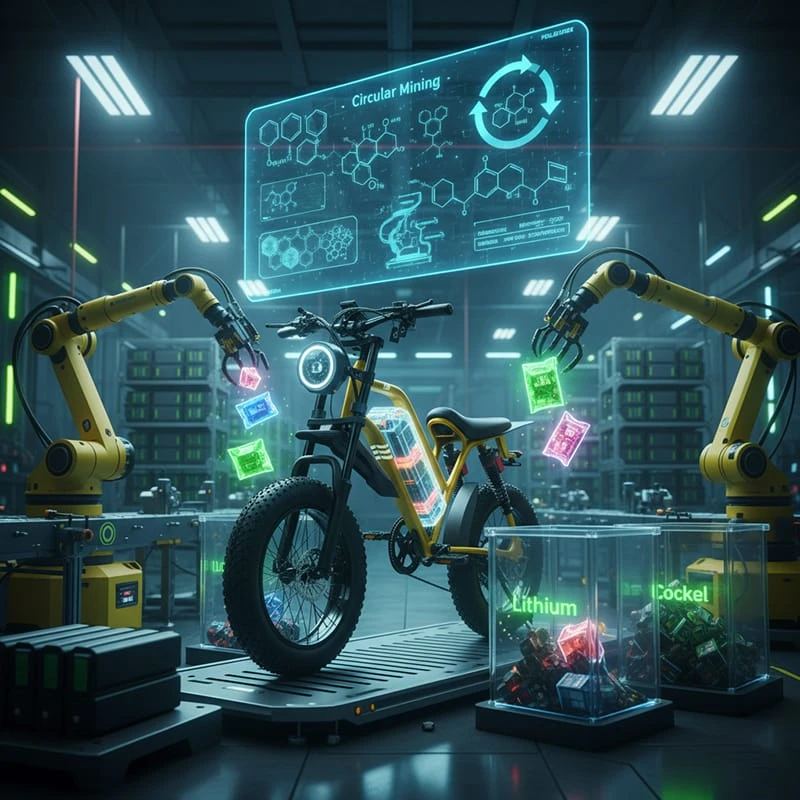
Recycling ("Urban Mining"): The New Imperative
Recycling is not just an environmental necessity; it's an economic and logistical one.
"Urban mining" is the process of recovering high-value materials from post-consumer waste. A single e-bike battery contains significant amounts of recoverable cobalt, nickel, manganese, and lithium. Recovering these materials from an old battery is vastly more energy-efficient and has a smaller carbon footprint than mining new virgin materials.
The B2B Responsibility: Your New Compliance Burden
This is where the risk shifts directly to you, the B2B importer or brand.
The EU Battery Regulation (EU 2023/1542) is a game-changer. It establishes "Extended Producer Responsibility" (EPR). In short, the law states that the company that first places the e-bike on the market in an EU country is financially and logistically responsible for collecting and recycling its batteries at the end of their life.
As a distributor, brand, or OEM partner, this is your responsibility.
This challenge is especially acute for high-capacity models. A battery for a fat tire electric bike or a high-performance electric dirt bike can be 2-3 times larger than a standard commuter battery. This means its recycling cost is higher, and its potential environmental impact (if mishandled) is greater.
Choosing a manufacturing partner who only builds the bike but offers no EoL solution is a massive business risk. A true partner, like Poleejiek, works with you to establish compliant, cost-effective recycling pathways in your target markets before the first container ships.
2. The "E" in ESG: Sustainable Manufacturing Practices
A truly "green" e-bike comes from a "green" factory. The environmental commitment must extend beyond the battery to the entire production floor. As a B2B buyer, performing due diligence on your supplier's manufacturing practices is essential.
Renewable Energy & Carbon Footprint
The carbon footprint of manufacturing is immense. A forward-thinking factory invests in reducing its Scope 2 emissions. This includes:
-
On-site Solar: Installing solar panels on factory rooftops to power assembly lines and welding stations with clean energy.
-
Energy Efficiency: Using automated, high-efficiency motors, LED lighting, and energy recovery systems to reduce overall grid consumption.
Materials Innovation and Chemical Management
The materials that make up the bike are a key area for ESG improvement.
-
Recycled Aluminum: Manufacturing frames from recycled aluminum can use up to 95% less energy than producing virgin aluminum.
-
Water-Based Paints: Traditional solvent-based "wet" paints release high levels of Volatile Organic Compounds (VOCs), which are harmful air pollutants. Shifting to water-based paints or powder coating processes drastically reduces these emissions.
-
Plastic-Free Packaging: The amount of styrofoam, plastic wrap, and foam blocks in e-bike packaging is staggering. A sustainable partner designs robust, ISTA-certified packaging using honeycomb cardboard, molded pulp, and other recyclable materials.
Waste Reduction and "Lean" Principles
Waste is a cost. A smart factory designs it out of the process.
-
Optimized Cutting: When manufacturing components for fat tire electric bikes, a sustainable partner uses advanced nesting software to optimize how parts (like frames or the fenders for an electric bike fat tire) are cut from raw materials, minimizing scrap.
-
Water Recycling: Closed-loop water filtration systems for processes like parts washing or painting can recycle over 90% of the water used.
3. The "S" & "G": Why Your Partner Must Be Ethical
An e-bike built with sustainable materials is worthless if it was built by exploited labor. The "Social" and "Governance" aspects of ESG are the foundation of trust and long-term partnership.
"S" (Social) — People & Supply Chain Ethics
This pillar is about human rights. It ensures that the people building your products are treated fairly and safely.
-
Fair & Safe Labor: This is the baseline. It includes fair wages, reasonable hours, safe working conditions (proper PPE, ventilation), and zero tolerance for child or forced labor. B2B partners should demand audits from certification bodies like BSCI or SA8000.
-
Ethical Supply Chain (Conflict Minerals): This is a critical, non-negotiable point. The automotive and electronics industries (which e-bikes belong to) are under intense scrutiny to eliminate "conflict minerals" — tin, tantalum, tungsten, gold (3TG), and increasingly, cobalt — sourced from conflict zones like the Democratic Republic of Congo (DRC).
A responsible partner must have a due diligence program aligned with OECD guidelines to map their supply chain and ensure their components are conflict-free.
"G" (Governance) — Compliance & Transparency
Governance is the "proof." It’s the rules, processes, and transparency that prove a company is adhering to its "E" and "S" claims.
-
Regulatory Compliance: This is the bare minimum. Your partner must demonstrate 100% compliance with all international safety standards, such as UL 2849/2271 (for North America) and EN 15194 (for Europe). Failure here means your product is illegal to sell.
-
Transparency & Audits: A true B2B partner operates with transparency. They should be willing to share their third-party audit results, material compliance data sheets, and their internal ESG report.
When B2B buyers are searching for an electric bike for sale, a supplier who proactively provides a comprehensive ESG and compliance report is demonstrating a level of trustworthiness that a low-cost, low-transparency factory cannot match.
4. ESG in Action: Applying Principles to Product Lines
ESG is not a generic label; its principles apply differently across product categories.
Case A: High-Performance & Electric Dirt Bikes
Customers searching for the best electric dirt bike are looking for extreme power and durability. Your ESG commitment proves this performance is achieved responsibly.
-
"S" (Social): The high-torque motors and controllers used in electric dirt bike for adults models must be vetted to be free of conflict minerals.
-
"E" (Environmental): The large, high-discharge batteries required for a dirt bike electric represent a significant recycling obligation. Your partnership must include a clear EoL plan for these specific, high-value battery packs.
-
"G" (Governance): These powerful machines must be rigorously tested to all applicable safety and EMC standards to protect riders and reduce your liability.
Case B: Leisure & Adventure (Fat Tire eBikes)
A fat tire ebike is marketed as a tool for exploring nature. Your manufacturing process must honor that promise.
-
"E" (Environmental): The manufacturing of frames and components must focus on recycled materials and low-VOC paints, ensuring the bike's creation doesn't pollute the environments it's meant to be ridden in.
-
"S" (Social): Durability is a social good. An electric dirt bike adult model or fat tire bike designed for longevity and repairability (rather than disposal) respects the customer and reduces overall waste. This means providing clear service manuals and long-term parts availability.
5. Conclusion: ESG is Your Core B2B Competitive Advantage
In 2026 and beyond, the most successful e-bike brands will be the most responsible ones.
ESG is no longer an optional add-on; it is a non-negotiable "market access pass," especially in Europe and North America.
For you, the B2B partner, importer, or distributor, choosing a supplier like Poleejiek—one that has deeply integrated ESG into its operations—is not a cost. It is one of the highest-ROI decisions you can make.
-
You Reduce Compliance Risk: You are protected from new regulations like The EU Battery Regulation (EU 2023/1542).
-
You Enhance Your Brand Image: You can confidently market your products as sustainable and ethically sourced, winning the trust of modern consumers.
-
You Build a Resilient Business: A transparent, ethical, and compliant supply chain is a strong supply chain, free from the shocks that affect irresponsible operators.
Don't just ask your suppliers for their pricing. Ask for their ESG report.
Contact the POLEEJIEK B2B team today. Let us show you how our sustainable manufacturing processes and comprehensive battery recycling programs can help you lead the market in Europe and North America.
FAQ
What is ESG and why does it matter for e-bikes?
ESG stands for Environmental, Social, and Governance. It matters for e-bikes because B2B buyers are now judged on their "triple bottom line," not just cost. This includes the environmental impact of manufacturing, the ethical treatment of workers ("Social"), and proof of compliance ("Governance").
What is "Extended Producer Responsibility" (EPR) for e-bike batteries?
EPR is a legal principle, like in the new EU Battery Regulation, which states that the company that first sells an e-bike in a market is financially and logistically responsible for collecting and recycling its batteries at the end of their life. This risk shifts directly to B2B importers and brands.
What are "conflict minerals" in e-bike manufacturing?
These are minerals (like cobalt, tin, tungsten, and gold) sourced from conflict zones, such as the DRC. The e-bike industry is under scrutiny to ensure these materials are not in their supply chains. A responsible partner must have a due diligence program to ensure their components are conflict-free.
How does sustainable manufacturing reduce an e-bike's carbon footprint?
-
By using renewable energy, like on-site solar, to power factory operations.
-
By using recycled materials, such as recycled aluminum, which uses up to 95% less energy than virgin aluminum.
-
By using low-emission materials, like water-based paints instead of solvent-based paints, to reduce VOCs.



